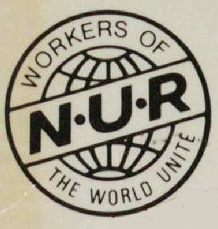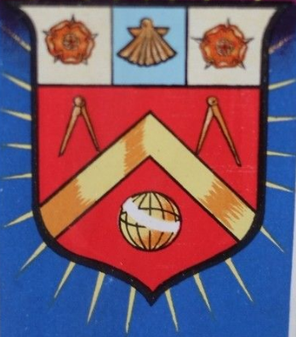
The Scottish Trades Union Congress (STUC) is the national trade union centre in Scotland. With 40 affiliated unions as of 2020, the STUC represents over 540,000 trade unionists.
In British politics, an affiliated trade union is one that is linked to the Labour Party. The party was created by the trade unions and socialist societies in 1900 as the Labour Representation Committee and the unions have retained close institutional links with it.
The Co-operative Party is a centre-left political party in the United Kingdom, supporting co-operative values and principles. The party currently has an electoral pact with the Labour Party. Established in 1917, the Co-operative Party was founded by co-operative societies to campaign politically for the fairer treatment of co-operative enterprise and to elect co-operators to Parliament. The party's roots lie in the Parliamentary Committee of the Co-operative Union established in 1881.

The Bakers, Food and Allied Workers' Union (BFAWU) is a trade union in the United Kingdom. Founded in 1847 in Manchester, it represents workers in the food industry.

The National Union of Railwaymen was a trade union of railway workers in the United Kingdom. The largest railway workers' union in the country, it was influential in the national trade union movement.

The Ceramic and Allied Trades Union (CATU) was a trade union representing pottery workers in the United Kingdom.

The Amalgamated Engineering Union (AEU) was a major British trade union. It merged with the Electrical, Electronic, Telecommunications and Plumbing Union to form the Amalgamated Engineering and Electrical Union in 1992.
The National Association of Operative Plasterers (NAOP) was a trade union representing plasterers in the United Kingdom.

The National Union of Vehicle Builders (NUVB) was a trade union in the United Kingdom. The NUVB represented a mixture of skilled and unskilled workers in the automotive industry.

The National Society of Operative Printers and Assistants (NATSOPA) was a British trade union.

The Amalgamated Society of Woodworkers (ASW) was a British trade union representing carpenters, joiners and allied trades. The ASW was formed in 1921 by the amalgamation of two smaller unions. It was itself merged into the Union of Construction, Allied Trades and Technicians in 1971.

John William Banfield was a British trade unionist and Labour Party politician, who served as Member of Parliament (MP) for Wednesbury from 1932 until his death in 1945.

The National Union of Distributive and Allied Workers (NUDAW) was a trade union in the United Kingdom.

The Amalgamated Union of Building Trade Workers (AUBTW) was a British trade union.

The Irish Trades Union Congress (ITUC) was a union federation covering the island of Ireland.
The National Union of the Footwear, Leather and Allied Trades (NUFLAT) was a trade union in the United Kingdom which existed between 1971 and 1991. It represented workers in the leather and footwear industry.

The National Union of Boot and Shoe Operatives (NUBSO) was a trade union in the United Kingdom which existed between 1873 and 1971. It represented workers in the footwear industry.
The United Textile Factory Workers' Association (UTFWA) was a trade union federation in Great Britain. It was active from 1889 until 1975.
John Swift (1896–1990) was an Irish trade union leader and secularist.
Norman Hogg was a Scottish Labour Party politician.













